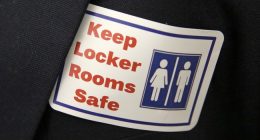
By Lewis Faulk, Heather MacIndoe and Mirae Kim
Fewer than a third of charities in the U.S. (31%) engaged in advocacy in the last five years. This represents a dramatic decline in the past two decades, we found, even though the law allows these groups to speak up regarding the issues that affect the people they serve.
The results of the Public Engagement Nonprofit Survey, a new nationally representative study we conducted on behalf of Independent Sector – a coalition of nonprofits, foundations and corporate giving programs – indicate that many charities don’t engage in policy discussions because they don’t fully understand the rules governing those activities.
We are scholars of nonprofits who conduct research regarding nonprofits. The executive directors of about 2,300 nationally representative nonprofits completed this survey during the second half of 2022.
Along with finding that only 3 in 10 nonprofits engage in policy advocacy, we found that only 25% report ever formally lobbying government, compared with 74% that ever lobbied in 2000 – and this is heavily related to not knowing that they can. In 2000, the last time a similar survey was conducted, 73% of charities knew they had the right to support or oppose legislation, compared with only 32% who know that today.
Why it matters
We were surprised to see such a sharp decline in nonprofit advocacy, despite ongoing educational efforts around advocacy by national and state associations of nonprofits and others since 2000.
All charities, officially known as 501(c)3 nonprofits due to the portion of the U.S. tax code that defines their obligations, may legally speak out regarding public issues in an effort to influence local, state and national government decisions. There are roughly 1.5 million nonprofits of this kind in the U.S., including food banks, homeless shelters, day care centers and arts organizations.
It can be vital for the advancement of their missions that charities exercise this right. For example, after-school programs can encourage staff members and volunteers to address school board members and other local officials, state representatives – and even members of Congress. They can suggest ideas for new rules, laws or funding that would help the children they serve.
Read Related Also: 16-Year-Old Boy Killed in Shooting at Oklahoma Football Game
The rules for how nonprofits can advocate are more flexible than many people believe. Nonprofits can raise awareness about issues affecting the people they serve, and they can also lobby by directly reaching out to public officials about legislation. As long as nonprofit employees don’t spend too much time out of their day – meaning that doing so does not become a major part of their daily activities – and don’t use government money for lobbying, they’re complying with the law.
While how much is “too much time” is unclear, charities can file a simple one-page form with the IRS, called the 501(h) election, providing their organization’s name and address and taking the election. Filing this form lets charities follow much clearer rules based on how much money they spend on lobbying rather than how much of it they do.What’s more, when nonprofits use this form, their volunteers don’t face any limits on the time they spend lobbying on behalf of organizations.
There’s evidence that the public wants nonprofits to be engaged in this way. According to a recent poll the Independent Sector conducted, 87% of registered voters support nonprofits educating policymakers about the needs of their communities.
We believe these findings indicate a need for more training of nonprofit leaders regarding the importance of advocacy and lobbying tied to their missions.
What’s next
We have several additional related studies underway, including qualitative interviews, that will cast more light on why so few nonprofits engage in advocacy and identify potential solutions. Following the completion of the project, we plan to make the data publicly available for additional research by other scholars of nonprofits. We’re also planning to conduct follow-up surveys to see how these trends evolve.
![]()
Lewis Faulk is Associate Professor of Public Administration and Policy at American University; Heather MacIndoe is Associate Professor of Public Policy at the University of Massachusetts, Boston; Mirae Kim is Associate Professor of Nonprofit Studies at George Mason University.
The Conversation arose out of deep-seated concerns for the fading quality of our public discourse and recognition of the vital role that academic experts could play in the public arena. Information has always been essential to democracy. It’s a societal good, like clean water. But many now find it difficult to put their trust in the media and experts who have spent years researching a topic. Instead, they listen to those who have the loudest voices. Those uninformed views are amplified by social media networks that reward those who spark outrage instead of insight or thoughtful discussion. The Conversation seeks to be part of the solution to this problem, to raise up the voices of true experts and to make their knowledge available to everyone. The Conversation publishes nightly at 9 p.m. on FlaglerLive.
Previous Conversations:









